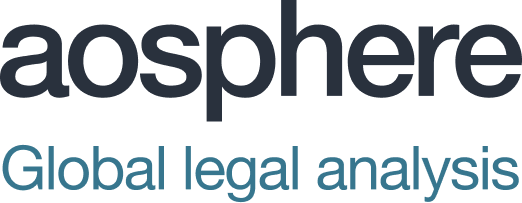This snapshot highlights the incoming rules to South Korea's short selling regime.
1. Background
The general ban on short selling in South Korea's domestic markets is due to expire on 30 March 2025, with permitted covering short sales in relation to all securities listed on the KRX resuming from 31 March 2025.
There have been numerous changes to the short selling rules since the general ban on short selling was imposed in November 2023. The regulator, the Financial Services Commission (FSC) and the Korea Exchange (KRX) have adopted a multifaceted approach to revisiting the short selling rules to make them more effective at detecting and preventing naked short selling.
2. Rules changes
- Internal short selling controls - corporate investors, including those trading through local brokers, intending to short sell Korean-listed securities are required to adopt and implement internal control procedures and systems, including an inventory management system to ensure that sell orders are placed only within the available balance of each account. Institutional investors will have to report stock balance information and over-the-counter transactions to the KRX. (Effective 31 March 2025)
- Limits on securities lending will be imposed on institutional investors’ stock repayment period (limited to 90 days and renewable for a maximum of 12 months) to bring requirements for institutional investors in line with retail investors. (Effective 31 March 2025)
- Systemic changes - the KRX launched the computerised naked short selling detection system (NSDS) earlier this year which it has been testing for operation. The NSDS will be used to detect and prevent illegal short selling in real time. Relevant system upgrades have also been made at the Korea Securities Depository and the Korea Securities Finance Corporation to implement the imposition of limits on institutional investors’ stock repayment period. (Full launch 31 March 2025)
- New trading platform – following the launch of a new alternative trading system (ATS), Nextrade, at the beginning of March 2025, short selling rules applicable to the KRX market, such as restrictions on short selling and disclosure obligations by shareholders, will also apply to Nextrade transactions. If a short order is submitted to the ATS, investors should indicate that it is a short order and that the ATS will submit the details of the short order received to the KRX. (Effective 31 March 2025)
- Prohibiting short sellers from acquiring convertible bonds (CBs) and bonds with warrants (BWs) issued by the same company from one day after the company discloses its CB or BW issuance until the day it discloses its issuance price (exemptions may apply). (Effective 31 March 2025)
- Temporary short selling bans - the KRX may impose temporary short selling bans specific to an issuer whose stock is designated as ‘overheated short-selling securities’, including securities traded on Nextrade. To ease the impact of reinstating short selling, the criteria for designating ‘overheated short-selling securities’ will be eased until 31 May 2025. (Effective 31 March 2025)
- Strengthened criminal penalties and administrative sanctions for breaches of short selling rules (Effective 31 March 2025):
- Illegal (naked) short selling will be subject to the same enhanced prison terms as unfair trading i.e. illicit gains of more than KRW 5 billion won (approximately USD 3.79 million) may face prison sentences of up to life imprisonment (prison terms vary on a sliding scale depending on the amount of profit generated or loss avoided from naked short sale).
- New administrative sanctions will grant the FSS power to restrict the trading of financial investment products for up to five years and limit the appointment or reappointment of executives at listed companies.
- Institutional investors, corporate investors and securities firms who fail to comply with the new requirements to establish internal short-selling controls and transmission of relevant information may result in a fine of up to KRW100 million, even when there is no occurrence of naked short sale activities.
- Investor registration number: Entities with a net short position balance of 0.01% or more of the total issuance volume or KRW 1 billion or more, or entities that wish to engage in transactions with a possibility of naked short selling should apply for and obtain a short-selling registration number from the Financial Supervisory Service. Investors must notify the KRX/investment broker of the registration number when conducting a short-selling transaction. (Launched 6 January 2025. Applications still being accepted)
- Public reporting threshold - Investors should make disclosures if one of the net short position thresholds is met (i) 0.01% holding with market value over KRW 100 million; or (ii) market value of KRW 1 billion or more. The KRX will publish the following information: (1) aggregated disclosed net short position per issue, and separately (2) the name and business registration number of the institution and the date the institution met the disclosure threshold. The previous higher threshold of 0.5% for public disclosure has been removed. (Effective 1 December 2024)
All the above have been covered in greater detail in Rulefinder alerts to subscribers and the South Korea Rulefinder Memorandum.
3. What's next?
On 31 March 2025, there will be full resumption of short selling for the first time in five years in South Korea. The FSC and KRX have made a raft of holistic changes to establish mechanisms to detect and ultimately prevent naked short selling. No doubt the FSC will continue to be a pro-active regulator in this field.
Rulefinder will continue to monitor and inform subscribers about: further rule changes and sanctions imposed for breaches of the rules above (published in our sanctions tracker available on the Rulefinder Shareholding Disclosure homepage).
How aosphere can help
Rulefinder Shareholding Disclosure provides comprehensive analysis of shareholding disclosure rules in 100+ jurisdictions, covering substantial shareholdings, short selling, sensitive industries, takeovers, and issuer requests.
The detail is there for those who need it, but we also provide summaries and threshold apps for those who don’t.






